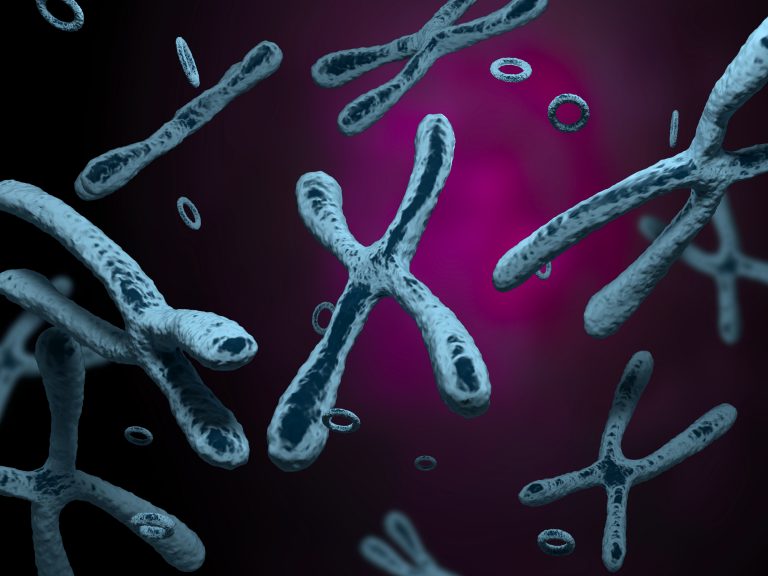
Human cells have twenty-three pairs of chromosomes but in cancer, genes can be amplified in chromosomes or in circular extrachromosomal DNA (ecDNA), whose frequency and functional significance are not yet understood. Now researchers at the University of California (UC), San Diego, report that ecDNA is a common event in human cancer, occurring at minimum in 14% of human tumors, with higher frequencies in the most malignant forms of cancer, including glioblastoma, sarcoma, esophageal, ovarian, lung, bladder, head and neck, gastric, and many others.
Their findings are published in the journal Nature Genetics in a paper titled, “Extrachromosomal DNA is associated with oncogene amplification and poor outcome across multiple cancers.”
This is the first time that a study has shown that the multiplication of these ecDNA genes—a phenomenon called ecDNA oncogene amplification—is present in a broad range of cancer tumor types.
ecDNA as a feature of cancer was first described over 50 years ago, but only recently is evidence emerging of its prevalence among tumor types. These circles of DNA change how cancer-driving oncogenes are expressed, and, in so doing, promote cancer growth and play a key role in tumors’ ability to evolve and resist treatments.
“This study provides a new window into the molecular epidemiology of ecDNA in cancer, providing a unique opportunity to study patients longitudinally to better understand how and why they respond poorly to treatment,” commented Paul Mischel, MD, professor at the UC San Diego School of Medicine and a member of the Ludwig Institute for Cancer Research.
The researchers also found that patients whose cancers have ecDNA have significantly shorter survival than all other cancer patients, whose tumors are driven by other molecular lesions, even when grouped by tumor type.
“Using computational analysis of whole-genome sequencing data from 3,212 cancer patients, we show that ecDNA amplification frequently occurs in most cancer types but not in blood or normal tissue. Oncogenes were highly enriched on amplified ecDNA, and the most common recurrent oncogene amplifications arose on ecDNA. ecDNA amplifications resulted in higher levels of oncogene transcription compared to copy number-matched linear DNA, coupled with enhanced chromatin accessibility, and more frequently resulted in transcript fusions,” the researchers wrote.
Notably, ecDNA-based circular amplicons were found in 25 of 29 cancer types analyzed, and at high frequency in many cancers that are considered to be among the most aggressive histological types, such as glioblastoma, sarcoma, and esophageal carcinoma.
The researchers are optimistic and hope that these findings will be applied to the development of powerful anticancer therapies for individuals with ecDNA-driven cancers.
“It seems that cancers have pulled an ancient evolutionary trick. Oncogenes and surrounding regulatory regions untether themselves from their chromosomal constraints, driving high oncogene copy number, accelerating tumor evolution, contributing to therapeutic resistance, and endowing tumors with the ability to rapidly change their genomes in response to rapidly changing environments, thereby accelerating tumor evolution and contributing to therapeutic resistance,” Mischel explained.
“We developed a powerful computational approach called Amplicon Architect, which identifies ecDNA based on three key features—circularity, high copy number, and “reuse of breakpoints,” noted Vineet Bafna, Ph.D., professor in the UC San Diego department of computer science and engineering.
Mischel and Bafna are cofounders of Boundless Bio, a company developing innovative new therapies directed to ecDNA in aggressive cancers.
Jason Christiansen, CTO, Boundless Bio added, “These results point to the urgent need for therapies that can target ecDNA and interfere with their ability to drive aggressive cancer growth, resistance, and recurrence.”













